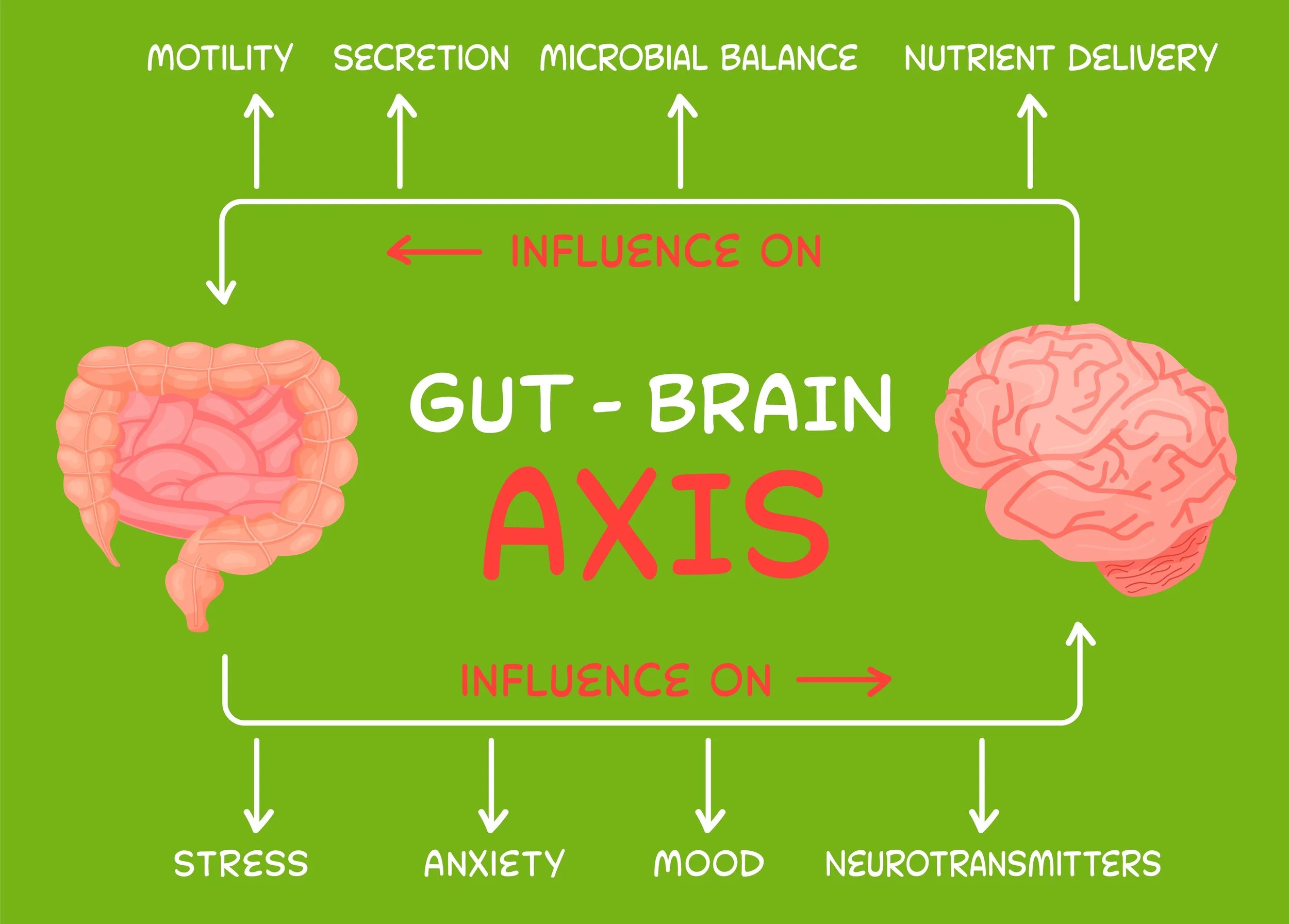Nerves and their Influence on Gut Health
Did you know that our 10th cranial nerve, the vagus nerve, known as the wandering nerve, runs from the brain, innervating the heart, lungs, organs in the respiratory tract and the gastrointestinal tract?
This nerve runs in a bi-directional capacity, allowing thoughts and feelings to impact gut function i.e., stress causing the body to produce a ‘fight or flight’ response by diverting blood flow away from the digestive organs, reducing gastric secretions, releasing a flood of chemicals including cortisol and adrenaline, whilst increasing heart rate amongst other things. In return, the pH of our gut is altered, affecting the gut microbiota. In acute instances the impact can be managed, however in a repeated and chronic situation, the impact is more profound. Continual alterations in gut pH, change microbial species and diversity further resulting in changes to gut function with a resulting symptomology including, bloating, reflux, pain, changes to bowel motions to either diarrhoea or constipation as well as food sensitivities and inflammation. As the gut-brain axis communicates both ways, the alterations to gut microbes impact our brain chemistry reducing the capacity for neurotransmitter production, creating a vicious cycle by increasing anxiety and mood disorders.
The good news is there are numerous ways to stimulate the vagus nerve and reduce your stress response to support your gut and prevent these alterations or bring your body back into balance.
Want to find out more? Use the booking tab above to make an appointment or organize a free discovery call.

